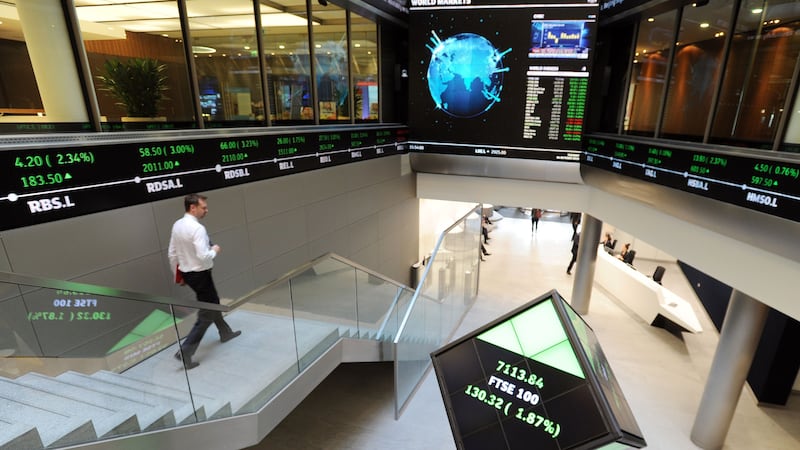NORTHERN Ireland's economy might not grow at all this year - and will probably still stall in 2017 - a new business barometer says.
Amid the doom and gloom following the referendum vote to leave the EU, business advice firm PwC has warned of a marked slowdown in the region's economic performance.
But it concluded that the north will avoid recession - but only just.
PwC’s latest UK Economic Outlook has downgraded its 2016 growth predictions for Northern Ireland to one per cent, falling to a paltry 0.2 per cent in 2017, making it the poorest-performing of the 12 UK regions and even worse than Scotland (0.3 per cent) and Wales (0.4 per cent).
But the firm's regional chief economist Dr Esmond Birnie fears quarter-on-quarter GDP growth could fall to close to zero in late 2016 and early 2017.
He said: “In our main scenario, overall UK economic activity is projected to recover gradually later in 2017 as the immediate post-referendum shock starts to fade.
“This suggests that the UK and Northern Ireland would avoid recession, although there are still significant uncertainties around this view.
"But alternative scenarios could see overall UK GDP growth in 2017 of anywhere between plus 1.5 per cent and minus-1 per cent, although even this latter relatively pessimistic scenario would not be a severe recession of the kind seen in the early 1980s or in 2008-9."
He added: “The main reason for the slowdown is projected to be a decline in business investment, particularly from overseas, while construction companies and capital goods manufacturers could also be relatively exposed to this kind of short-term cyclical slowdown.
"The weaker pound should also boost net exports, which should move from being a drag on overall UK GDP growth in 2015 to a positive contributor in 2017."
PwC Northern Ireland regional chairman Paul Terrington says action by the Bank of England should help confidence and that the post-referendum economic downturn should not be anything like as severe as that following the global financial crisis of 2008-9 or indeed the deep recession of the early 1980s.
He added: “Our main scenario projections suggests that the UK should narrowly avoid a recession over the next year, although we recognise that risks are weighted somewhat to the downside at present.
“It that forecast proves accurate, Northern Ireland should also avoid recession, although that may be a close call.
“The Northern Ireland business community needs to hold its nerve through this unsettled period, take stock of the potential impact of Brexit on their markets and operations, and make contingency plans for alternative outcomes.
“Local organisations should also look to the opportunities to offset any decline in long-term EU trade, by researching and building closer trade relationships with relatively fast growing economies like China and India and new markets like Australia and Canada.”
He said, though, that some confidence measures were emerging.
"With a new Prime Minister in post, the UK has avoided a protracted political vacuum; there is growing optimism that the government is moving to develop policies around people, mobility and trade," Mr Terrington said.
“The Prime Minister has also undertaken to consult all regions of the UK on how a Brexit would be negotiated and delivered and that offers the potential for the Executive to lobby strongly in respect of issues that directly impact on Northern Ireland, its businesses and its people.”








